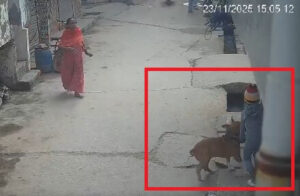SC reserves order on Centre’s plea for SC/ST law verdict review

The Supreme Court of India (File Photo)
The Supreme Court of India (File Photo)
New Delhi: The Supreme Court on Wednesday reserved its order on the Centre’s plea seeking recall of its 2018 judgment diluting stringent provisions of immediate arrest and no anticipatory bail for the accused on a complaint filed under the SC/ST (Prevention of Atrocities) Act.
The bench of Justice Arun Mishra and Justice Uday Umesh Lalit reserved the order even though senior counsel Vikas Singh and Gopal Sankaranarayanan opposed the plea for the review of March 20, 2018 judgment that had said that police would hold an inquiry to ascertain the veracity of the complaint filed under the Act before acting on it.
The Centre had told the top court that its judgment diluting the stringent provision of SC/ST (Prevention of Atrocities) Act holding that arrest on a complaint under the law was not mandatory had “seriously affected their (SC/ST) morale and confidence in the ability of the state to protect them”.
Both Vikas Singh and Gopal Sankaranarayanan had questioned the Centre’s plea for the recall of March 2018 judgment on the grounds of proportionality and Article 21 of the Constitution guaranteeing right to life to the people.
Article 21, which guarantees the protection of life and personal liberty, says: “No person shall be deprived of his life or personal liberty except according to procedure established by law.”
Advocate Priya Sharma, who along with others has challenged the move to amend the SC/ST (Prevention of Atrocities) Act for restoring the stringent provisions, said that the court on Wednesday reserved order on the Centre’s plea seeking the review of the March 20, 2018 judgment only.
Senior counsel Vikas Singh said that in the course of the mentioning before the bench later in the day, it was clarified that petitions challenging the amendment to the SC/ST (Prevention of Atrocities) Act would be heard after summer recess of the top court.
While ruling that there would be no mandatory arrest of accused on a complaint under SC/ST (Prevention of Atrocities) Act, the top court by its March 20 judgement had directed “…in absence of any other independent offence calling for arrest, in respect of offences under the Atrocities Act, no arrest may be effected” without the permission of appointing authority in case of public servant or that of Senior Superintendent of Police in case of general public”.
The court had said that it was providing for the safeguard “in view of acknowledged abuse of law of arrest” under the Act.
It further said: “It is necessary to express concern that working of the Atrocities Act should not result in perpetuating casteism which can have an adverse impact on integration of the society and the constitutional values.”
IANS





